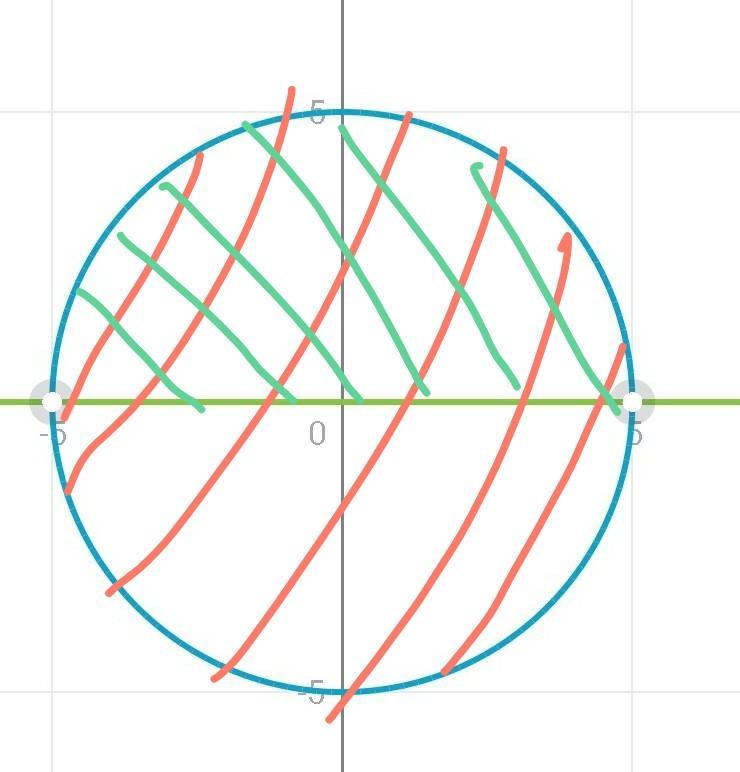Предмет: Алгебра,
автор: akhmatova73
1 напишите уравнение окружности с центром в точке (-2;3) и радиусом R=3
2.найдите множество точек координатной плоскости, которое задано системой неравенств:

помогите прошу срочно надо
Ответы
Автор ответа:
5
Ответ:
1. (x+2)²+(y-3)²=9
2. хє[-5;5]
ує[0;5]
Объяснение:
1. Уравнение окружности: (x-a)²+(y-b)²=r²
(x-(-2))²+(y-3)²=3²
(x+2)²+(y-3)²=9.
2. Построим окружность с центром (0;0) и радиусом 5 для х²+у²=25, следовательно хє[-5;5]
В этой же координатной плоскости по Оси Ох проведем луч у=0.
т.к у≥0 yє[0;5]
Ответ: хє[-5;5]
ує[0;5]
Показал на рисунке где 2 полосы это подходящее.
Приложения:

Похожие вопросы
Предмет: Русский язык,
автор: julia990
Предмет: Геометрия,
автор: gordonfrimen25
Предмет: Другие предметы,
автор: shhekin77
Предмет: Биология,
автор: KapbI4228
Предмет: Физика,
автор: fusianovich